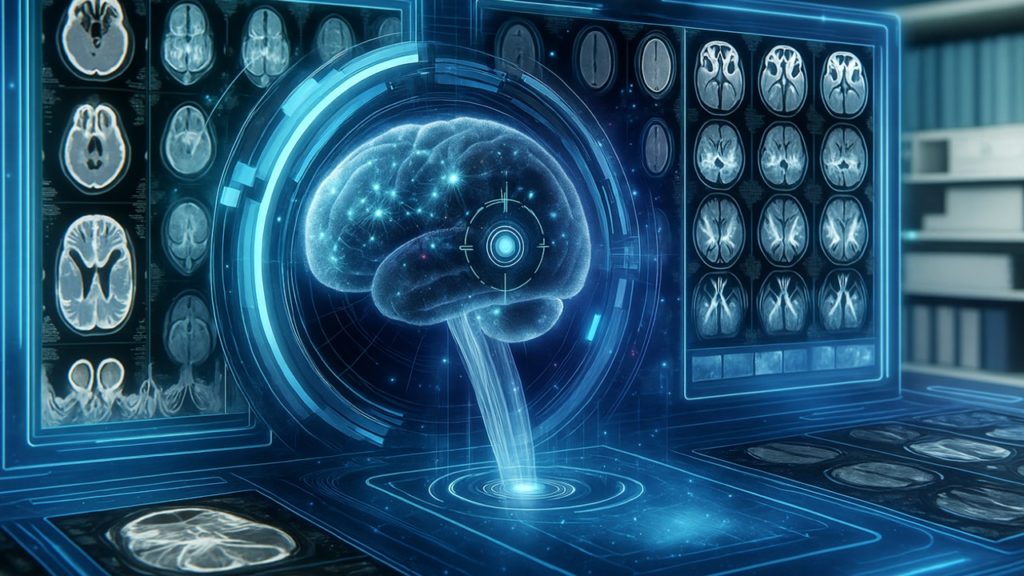Joe Rogan and Gary Brecka Share Key Insights into Human Longevity
Joe Rogan and Gary Brecka break down the science behind living longer, covering gene editing, fasting, AI diagnostics, and functional medicine.
Highlights:
- The episode explores science-backed approaches to extending healthspan, including gene editing, fasting, AI diagnostics, and functional medicine.
- CRISPR, autophagy, and nutrient timing are discussed as emerging tools to prevent age-related decline and enhance cellular regeneration.
- AI is already reshaping early disease detection, with real-world examples from Singapore showing scalable models for diagnostics in low-resource settings.
Joe Rogan joined Gary Brecka’s Ultimate Human podcast for a sweeping conversation that moved from gene editing and cellular regeneration to the shortcomings of modern medicine. At its core was a question that felt both urgent and personal: How far can science and willpower take us in the fight to stay healthier and live longer?
Lost Knowledge and Ancient Health Theories
Midway through the episode, Rogan and Brecka dive into a discussion on ancient technologies and health knowledge. Brecka suggests that advanced civilizations may have once harnessed biological and energetic technologies we no longer understand. Rogan adds speculation by referencing theories like Christopher Dunn’s proposal that the Great Pyramid of Giza functioned as an energy generator, not a tomb. These ideas lack empirical support, but they echo a cultural fascination with the notion that past societies may have unlocked secrets to health and longevity that modern science is still chasing.
From De-Extinction to Human Engineering
Further into the discussion, Brecka highlights the work of Colossal Biosciences, a real-world biotech company aiming to bring extinct species like the woolly mammoth back to life using gene sequencing. This technique involves reading and editing DNA to reconstruct viable genetic material.
The conversation shifts from animals to humans, raising questions about whether similar gene-editing tools could be used to prevent or correct age-related disease. One such tool is CRISPR-Cas9, a revolutionary method that allows scientists to cut and replace pieces of DNA with precision. In 2018, Chinese scientist He Jiankui shocked the world by using CRISPR to edit the genomes of twin embryos, claiming he was trying to confer resistance to HIV. The experiment lacked ethical safeguards and scientific consensus, resulting in his imprisonment and raising global alarm about the risks of manipulating the human genome.
Despite that controversy, CRISPR is being studied in clinical trials for diseases like sickle cell anemia, certain cancers, and genetic blindness. Its potential to target age-related degeneration is under active investigation, particularly for conditions tied to DNA damage, cellular senescence, and mitochondrial dysfunction.

Artificial Intelligence and Human Identity
The podcast also touches on artificial intelligence and its growing role in medicine. Rogan questions whether AI systems have achieved true consciousness (a philosophical debate), but Brecka steers the focus toward their diagnostic utility. AI is already being used in radiology, genomics, and drug discovery to speed up the process and improve accuracy.
A compelling case study comes from Singapore, which has become a global leader in deploying AI for early disease detection. It’s national healthtech agency, Synapxe, pioneered AI-assisted chest X-rays to detect tuberculosis (TB), one of Africa’s deadliest infectious diseases. In Ethiopia, similar tools identified TB lesions in 8.5% of those screened, nearly seven times the national average. These technologies are now being trialed in collaboration with African hospitals and governments to extend diagnostic capacity in regions with few radiologists.
Singaporean companies have also developed smartphone-based cervical cancer screening tools and retinal imaging systems powered by AI. For example, EyRIS’s SELENA+ algorithm can detect diabetic retinopathy from retinal scans in under a minute, and is now being tested in Tanzania to address the continent’s shortage of eye care specialists. These innovations have already accelerated diagnostic timelines and created practical models for delivering affordable care in low-resource settings, offering a glimpse into how AI can scale precision diagnostics where human resources fall short.

Regeneration and the Science of Nutrient Timing
Later in the episode, Brecka discusses the body’s regenerative capacity, claiming it can be optimized through targeted inputs like fasting and nutrient timing. These claims are supported by emerging research in cellular biology and metabolic science.
Nutrient timing refers to the deliberate scheduling of macronutrient intake, particularly protein, around periods of activity or recovery. Research published in the Journal of the International Society of Sports Nutrition supports the idea that consuming adequate protein (20–40 grams) shortly after resistance training can enhance muscle protein synthesis, an essential process for preserving lean body mass as we age.
Underlying this concept is the mTOR pathway (mechanistic target of rapamycin), a central regulator of cell growth and repair. Eating protein-rich meals stimulates mTOR, which promotes muscle development and tissue regeneration. However, persistent mTOR activation has been linked to accelerated aging and increased cancer risk, which is why cycles of fasting (periods of nutrient deprivation) are thought to provide balance by temporarily inhibiting mTOR and triggering autophagy, the body’s internal cleanup process.
Autophagy, first described in depth by Nobel Prize winner Yoshinori Ohsumi, allows cells to degrade damaged proteins and organelles, enhancing cellular health and resilience. Notably, several studies have linked intermittent fasting with improved metabolic markers, reduced inflammation, and extended lifespan in animal models.
Functional Medicine vs. Conventional Care
The conversation then turns to the healthcare system itself. Brecka contrasts functional medicine with traditional models, positioning the former as a root-cause approach rather than symptom management. Functional medicine typically incorporates lifestyle, diet, and detailed biomarker testing to identify early imbalances.
Studies have found promising outcomes. For instance, a 2019 paper in JAMA Network Open reported that patients treated in a functional medicine setting showed greater improvements in patient-reported quality of life compared to those receiving conventional care. While more rigorous, long-term studies are needed, the field is gaining attention for its personalized and preventive approach to aging.
The Final Question: What Is an “Ultimate Human?”
Toward the end of the episode, Brecka asks Rogan what it means to be an “Ultimate Human.” Rogan points to physical strength, mental resilience, and relentless curiosity – not a clinical definition, but a reflection of a broader movement. Living longer isn’t the only goal. Staying sharp, strong, and engaged deep into old age is what more people are aiming for.
Rather than offering final answers, the conversation raises urgent questions about how we approach aging, health, and human potential. It connects speculative ideas about ancient knowledge with the hard science of gene editing, AI diagnostics, and metabolic health. And as those fields continue to advance, the push to expand healthspan, not just lifespan, is shaping up to be one of the most important frontiers in science today.

